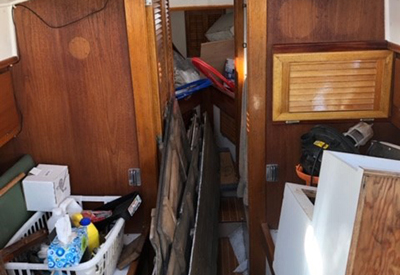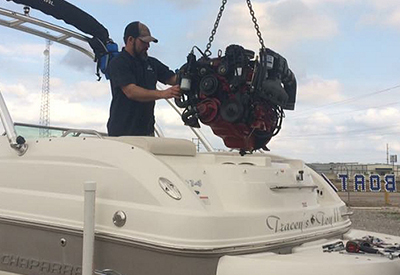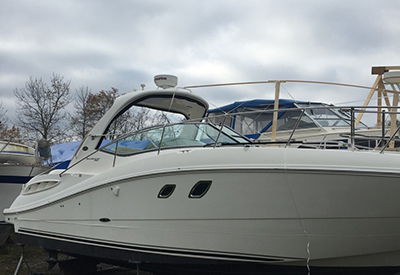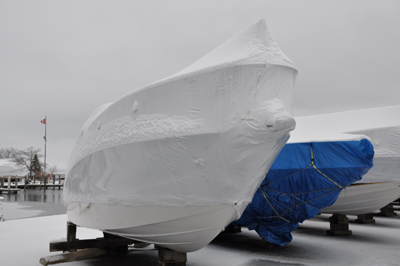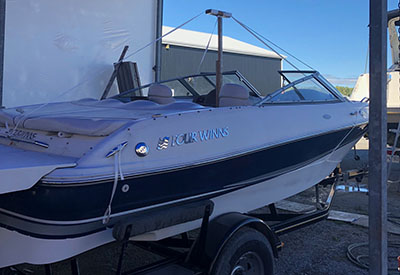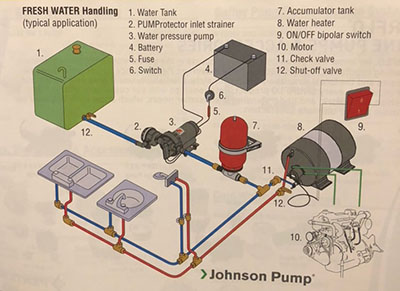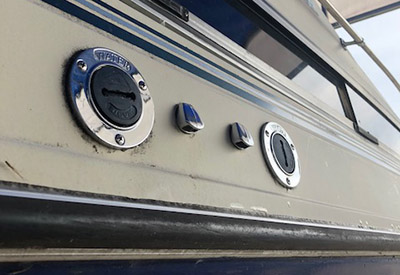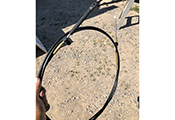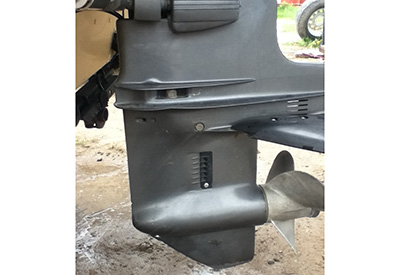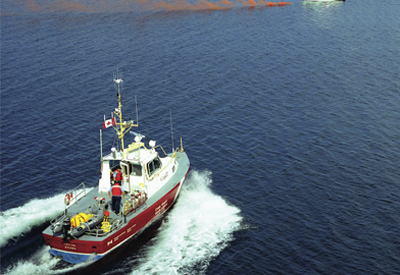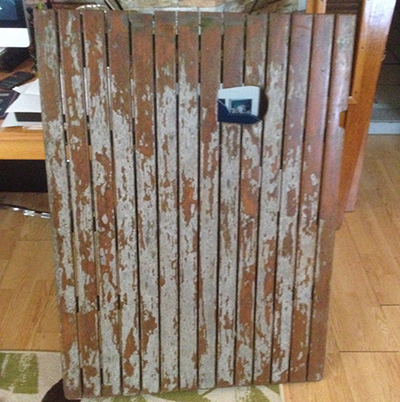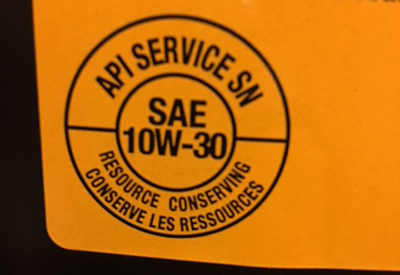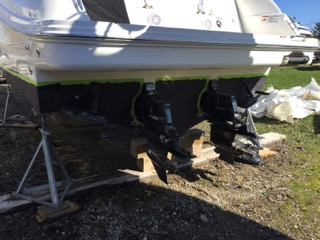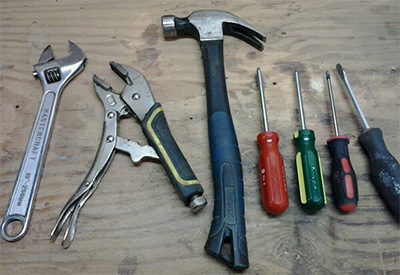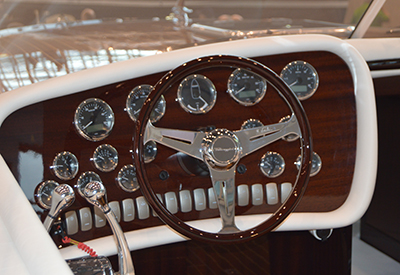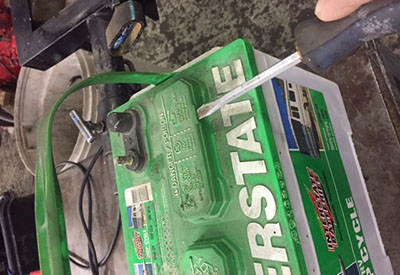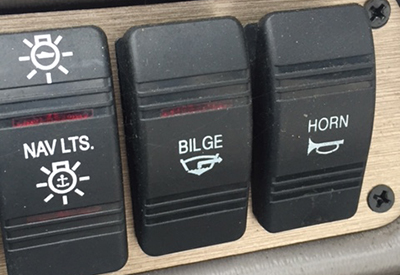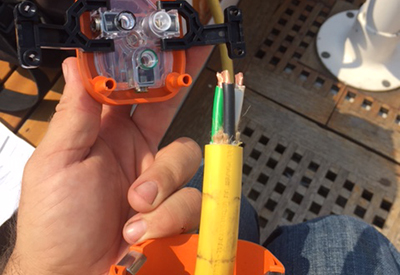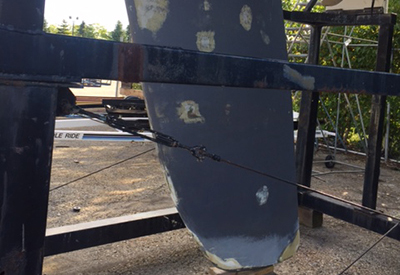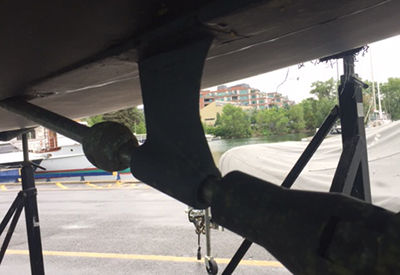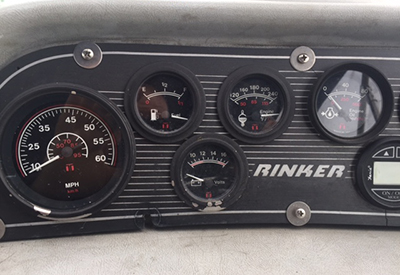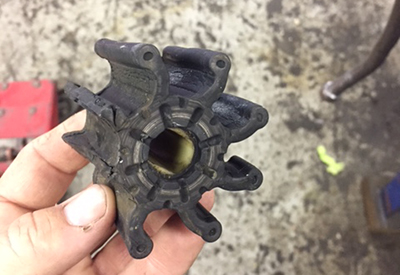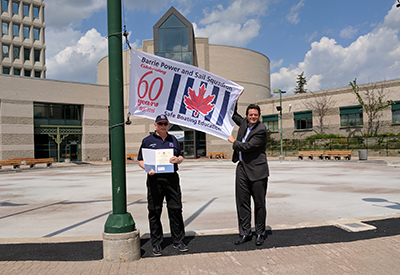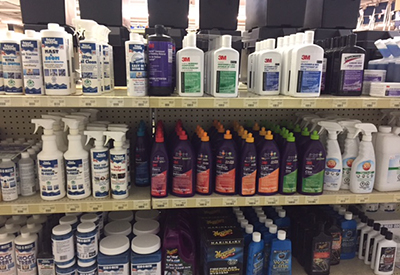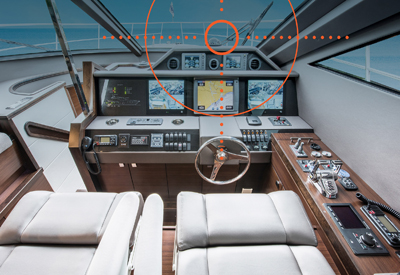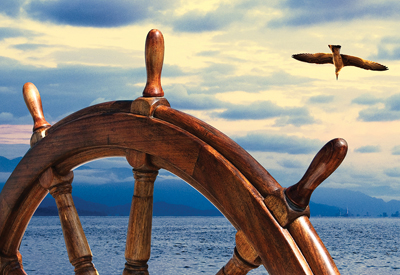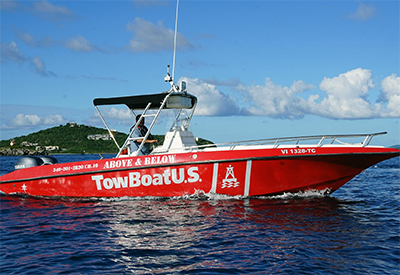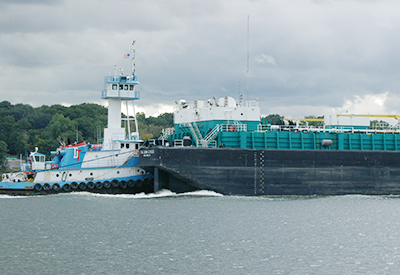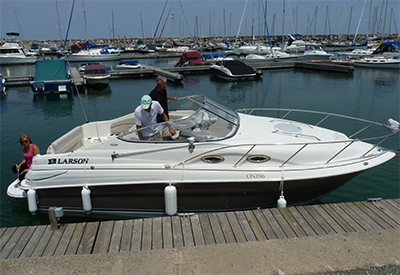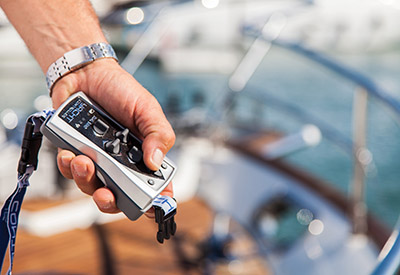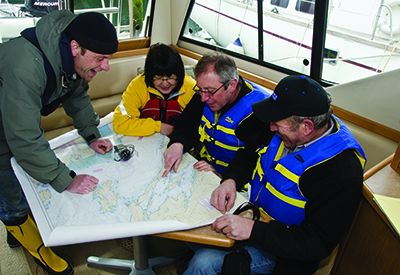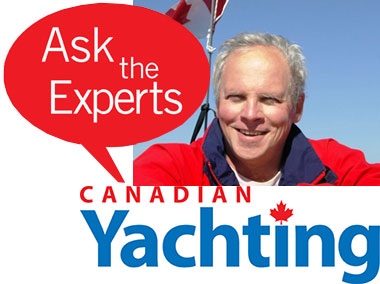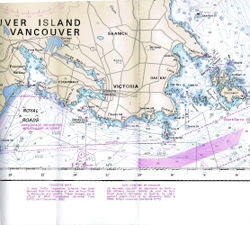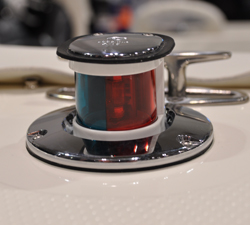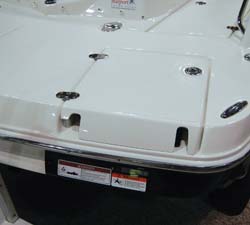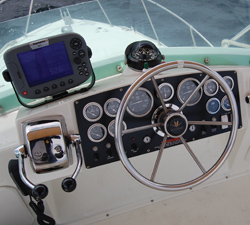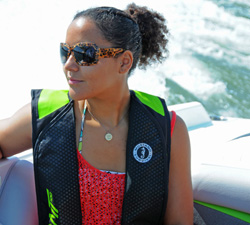November 21, 2018
Ask Andrew – boating year round: off-season projects
Recently I suggested doing an off-season (winter) project with a potential client, and my suggestions was met with surprise; surprise that she wouldn’t have to move her boat, and not have to worry about additional storage costs.
November 7, 2018
Ask Andrew – How to hire a boat repair contractor
A recent conversation with a fellow contractor got me thinking: With all of the information out there, including: Websites showing repairs, YouTube tutorials, Instagram pages and snapchat streams…
October 24, 2018
Ask Andrew – Preparing your boat for winter – Part two
Last time, I described the importance of covering your boat to protect it for the winter, and listed a few options and discussed their pros and cons.
October 12, 2018
Ask Andrew – Winterization
‘Winterization’ is a broad term used to prepare an engine for extended storage – specifically through the winter season (when temperatures drop below the freezing point).
October 10, 2018
Ask Andrew: Protecting your boat for the winter – Part One
As the cold approaches, shrink-wrapping is a hot topic, and I’ve heard more than a few debates at yacht clubs about the merits and disadvantages of winter covers, tarps and wraps. First, why cover your boat at all?
September 12, 2018
Ask Andrew: Water system autumn maintenance
Nothing stops a vacation faster than a problem with the fresh water system – be it leaks, smells, plugs or loss of pressure! Any of these can make living aboard for more than a day-trip strenuous, and in many cases can take the joy and comfort out of being aboard.
August 8, 2018
Ask Andrew: Mid-summer Q&A – Part 2: Leaks – Keeping water on the outside
After the stress and rush of spring prep, taking time to get your gear comfortably on board and sorted, taking the boat out for a shakedown cruise to sort out the ‘big’ problems, you may have felt that your boat is set for the season.
July 11, 2018
Ask Andrew – Midsummer Q&A
CYOB readers often ask questions about their boats and system. For this issue, I’ve answered a common question about engine control cables.
June 13, 2018
Ask Andrew: Dealing with overheating – keeping cool on the water
Modern marine engines run at very high temperatures and rely on a few methods to keep their temperatures within an acceptable range (somewhere between 120 and 180 degrees Fahrenheit).
May 16, 2018
Pyrotechnic Distress Flares vs. Electronic Distress Strobes
Pyrotechnic distress flares have been around for decades, while electronic strobe distress flares have only been introduced in the last couple of years – and they aren’t Canadian Coast Guard approved for use in Canada, at least not yet.
May 9, 2018
Ask Andrew: How to Keep your Brightwork Bright
In the early spring, just after launch, with the hustle and bustle of engine checks, antifouling, polishing and marking sling-locations behind us, boaters soon turn to the aesthetic…
April 11, 2018
Ask Andrew – Oil and Oil Changes
All engines, including marine engines (inboards, outboards and stern drives) have many moving parts that need to be lubricated by oil in order to allow metal parts to move with as little friction as possible.
March 7, 2018
Ask Andrew: Getting to the bottom of antifouling
I once heard an argument at a yacht club. Two old salts, patiently itching to let go lines and raise sail were preparing their boats for launch.
February 7, 2018
Ask Andrew: What tools and supplies should I keep onboard?
In this time of boat show afterglow, many boaters are counting the days until launch.
January 10, 2018
Ask Andrew: How to choose a contractor for your next project
With marina and yacht club parking lots full of boats, tarps laid, water tanks drained, and only a few brave souls to be seen – now is the time to take stock of the successes and shortcomings of the past boating season.
December 12, 2017
Ask Andrew: Battery Maintenance – How do I maintain my conventional batteries?
whether you choose power or sail (or both) batteries are an important part of your boat’s electrical system.
November 8, 2017
Ask Andrew: Bilge Pumps – keeping water on the outside of the boat
Water has a funny way of making its way into a boat: through through-hulls, stuffing boxes, leaks, hatches, windows and portholes
October 11, 2017
Ask Andrew: SmartPlug looks like a smart solution
If you walk the aisles at a boat show, visit a marine store, or stop in at a repair shop, you’ll likely be inundated with digital displays, vivid touch-screens, NMEA compatible devices, and Bluetooth connectivity.
September 12, 2017
Ask Andrew: I Hit Something! Now what? – Part 2
The moment we all dread. It’s a warm sunny day and you’re out for a cruise. Suddenly the boat shudders beneath you, pings, dings and clangs are heard and you realize that you’ve hit something submerged.
August 9, 2017
Ask Andrew: I Hit Something! Now what?
The moment we all dread. It’s a warm sunny day and you’re out for a cruise. Suddenly the boat shudders beneath you, pings, dings and clangs are heard and you realize that you’ve hit something submerged.
July 11, 2017
Ask Andrew: It used to work – but now it doesn’t! Common remedies to common problems mid-season
For most of us – this is the time to make the most of the boating season – launch and set up are done. Systems have been recommissioned. Let the fun begin!
June 7, 2017
Ask Andrew: Checking your engine out for the summer ahead
For Powerboaters, the engine is the heartbeat of the boat – no engine, no movement. With some simple preventative maintenance tips, time on the water can be maximized, while avoiding some potentially costly repairs.
May 24, 2017
Barrie marks Safe Boating Week
Every year, to mark National Safe Boating Awareness Week, the Barrie Power and Sail Squadron enlists the assistance of the Office of the Barrie Mayor to raise local awareness.
May 10, 2017
Ask Andrew: Canadian Tire or marine store – which do I choose?
Question: Can I buy generic automotive parts or products for my boat, or should they specify ‘marine’?
May 5, 2017
How to Aim Your Boat
How often have you seen boats weaving their way across the water, unable to keep heading in a straight line? Maybe you have even experienced this snaking yourself.
March 31, 2017
Top Dead Centre
‘Top dead centre’ is the position of the wheel that allows you to steer your boat straight with no back and forth movement of the wheel. When the boat is moving straight, your drive(s) or rudder(s) is(are) straight.
January 10, 2017
New Boater-Assistance Service Opens on St. Thomas, USVI
In the Caribbean or heading there? Emergency help is now available.
August 31, 2016
Confident Sailor / Reluctant Sailor – Part 2: Getting Ready – Skipper and Crew
In this second of three parts, we will explore preparing for a longer cruise from the people side. Later, in the third instalment we will look at final preparation of the boat…
May 10, 2016
No More Captain Crash! Embarrassment-Free Docking
While docking a sailboat has remained largely unchanged over the centuries, power boat designs have changed dramatically, even over just the last four decades…
December 21, 2015
Docking and Close-quarters Manoeuvering Made Easy
Comfort and convenience are important factors both to keep boaters enjoying boating as well as to attract new people into boat ownership. Perhaps the most significant regular challenges for all boaters are docking and close quarters manoeuvering. Getting in and out of your slip or into the fuel dock on a busy day can be tricky, especially if the wind is up or currents are running. In 2005, Volvo Penta introduced their revolutionary IPS drive systems that included an industry first – joystick docking.
November 19, 2015
Seamanship – Knowledge Is Power
We’ve all heard this before but it’s especially true when it comes to boating– knowledge is power. It is the power to confidently take your boat out with a load of passengers, go on longer trips, into unfamiliar waters, or even to navigate on your own to distant ports – that is the power of knowledge. The Canadian Power and Sail Squadrons, (CPS-ECP) offers a wide range of courses from introductory level to advanced and everything in between. Always focused on boating safety, the Canadian Power and Sail Squadrons, (CPS-ECP) have been empowering recreational boaters with knowledge for more than 75 years in Canada. Most of their courses are offered through the off-season when Power Squadron members themselves are unable to be out on their own boats.
May 27, 2015
Ask the Experts – Sacrificial Anodes
When metals are immersed in water and in close proximity to each other they produce an electrical voltage. When two dissimilar metals are in contact they form a galvanic cell, just like a battery.
April 23, 2014
The Future of Paper Charts
Will traditional paper charts soon be a thing of the past? And what will that mean for recreational boaters?Last fall, the National Oceanic and Atmospheric Administration (NOAA), the source for official US government nautical charts, abruptly announced it would no longer distribute lithographic nautical charts as of April 2014. The printer of NOAA charts, the US Federal Aviation Administration (FAA), made the decision to stop printing charts after the US budget shutdown last September. Is this the beginning of the end of paper charts as we know them? Will printed charts from the Canadian Hydrographic Service (CHS) be next?
February 18, 2014
See and Be Seen At Night
Navigation light repairs and replacements you can do yourself.In researching this article, we spoke to a number of marine industry professionals and started by asking, “Have you ever noticed boats on the water at night with incorrect or missing lights?“Or none at all!” was the frequent response we got as people laughed out loud about how common it is for navigation lights to be faulty.
December 30, 2013
`Boating Oops Awards 2014
What’s the dumbest thing you’ve ever done while boating?That’s the question I asked fellow-boaters over the past year. About half reported some real doozies, while the rest reported minor mishaps such as running out of gas in their dinghy or losing their winch handle overboard. Accidents happen to the best of us. The key to happy boating is to learn from our mistakes and the mistakes of others so we don’t repeat them.
August 19, 2013
Don’t Go Out Unless You Can Get Back In – Reboarding Ladders
It’s been a long time since I went for an unexpected swim, but it’s happened to me before and it will probably happen again. While losing your balance and hitting the water is bad (really bad if you are carrying an arm load of valuable things), clearly there should be an expectation that this may happen and every boat builder should aptly equip their boats to facilitate reboarding by a person who has fallen overboard.
August 2, 2013
Those Deviants Aboard Your Vessel
Deviation. Just the sound of that word makes you think that something fishy is going on; some deviant behaviour is taking place onboard your vessel that you can neither see nor hear. It’s there and if you don’t take heed, it will bite you in the backside and usually when it’s a dark and stormy night. So what is it? It is the effect on your magnetic compass from all those metal parts (i.e., engine block, steel tools, electronic gizmos such as radios and wiring) and various magnets (i.e., speakers, electric motor armatures).
May 13, 2013
Staying Afloat: The Power of PFDs
Intrepid CY volunteers dive in to test the latest PFDs – and find that comfort and style make them more wearable than ever. Is it just my imagination – or are more boaters wearing PFDs more of the time today than they used to? It has been reassuring over the past few years to see life jackets, inflatables, floater garments and similar life-saving gear being worn regularly in settings where the sight would have been rare a decade or two ago.

